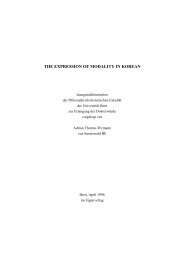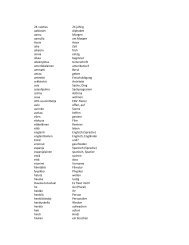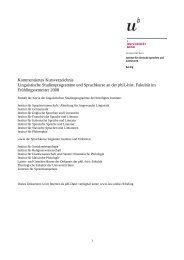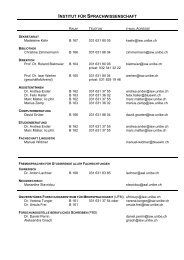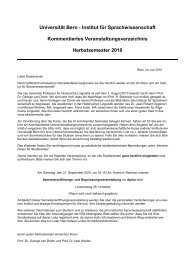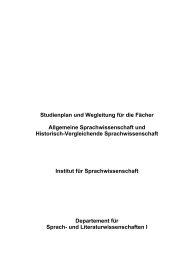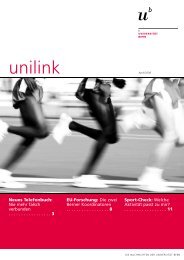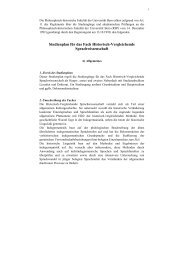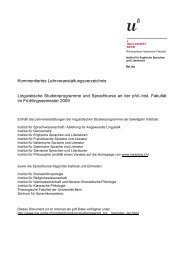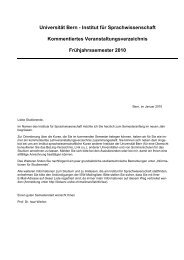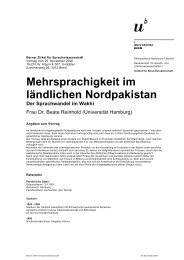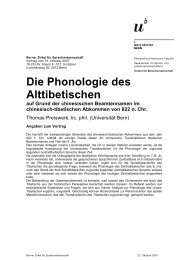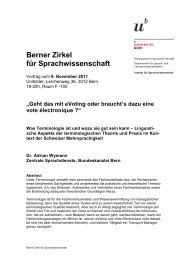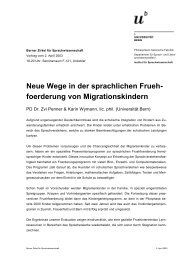BeLing SS 07 (pdf, 958KB) - Institut für Sprachwissenschaft ...
BeLing SS 07 (pdf, 958KB) - Institut für Sprachwissenschaft ...
BeLing SS 07 (pdf, 958KB) - Institut für Sprachwissenschaft ...
Sie wollen auch ein ePaper? Erhöhen Sie die Reichweite Ihrer Titel.
YUMPU macht aus Druck-PDFs automatisch weboptimierte ePaper, die Google liebt.
Content: In this course we will tackle the notion of “style” as discussed in linguistics.<br />
To quote Rickford and Eckert (2001: 1) on the importance of this concept: “Style is a<br />
pivotal construct in the study of sociolinguistic variation. Stylistic variability in speech<br />
affords us the possibility of observing linguistic change in progress … Moreover,<br />
since all individuals and social groups have stylistic repertoires, the styles in which<br />
they are recorded must be taken into account when comparing them ... . Finally, style<br />
is the locus of the individual’s internalization of broader social distributions of<br />
variation … .” As you will discover, style is not easily defined, nor easily studied.<br />
Using Eckert and Rickford’s (2001) collection Style and Sociolinguistic Variation, you<br />
will be introduced to different approaches to the study of linguistic variation: an<br />
anthropological approach, the Labovian sociolinguistic approach, Accommodation<br />
Theory and the approach propagated by Biber and Finegan, which has written and<br />
spoken register shifts at its heart.<br />
Texts: The course book will be available for purchase at the Uni Tobler bookshop:<br />
Eckert, Penelope and John R. Rickford (eds.)<br />
2001 Style and Sociolinguistic Variation. Cambridge, UK: Cambridge University<br />
Press.<br />
Aims: At the end of this course, students should be able to<br />
- know and apply the key terminology of the field of study;<br />
- define and critically compare different approaches to the study of style;<br />
- read the assigned texts critically with respect to content and methods employed<br />
Credit: Credits for the course are based on regular attendance and completion of all<br />
course work and evaluations.<br />
Evaluation (Leistungskontrolle):<br />
Test/Exam<br />
Written Assignment(s)<br />
Oral Presentation<br />
Other Class Work<br />
Evaluation at end of entire Module only Other :<br />
Date of Evaluation:<br />
Throughout semester<br />
Last week of semester<br />
34



